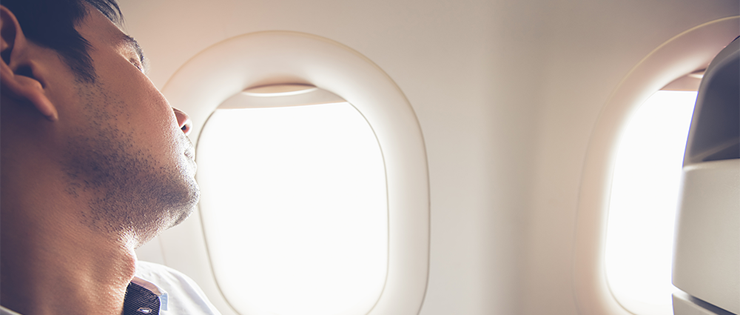
Years ago, it would take days or more to travel around the world. Planes would make several stops to get travelers to their destinations and prior to that, ships took even longer. When aviation evolved to the ‘jet age’, all of a sudden, we could be around the other side of the world in a day, a rate faster than our bodies can handle. With that rapid travel came jet lag.
Our bodies work on an internal clock called our circadian rhythm. The circadian rhythm dictates when we sleep, when we wake and at what times of the day certain hormones fly around the body. Jet lag occurs and gives us problems like difficulty sleeping, or a lack of alertness during the day.
When we reach our new destination, our circadian rhythm still thinks we are in our old time zone. It pumps out signals to make us want to sleep at the wrong times for the new place and signals to wake us up when we’re meant to be asleep. Our circadian rhythm is reset by exposure to light and dark but this can take some time to occur.
We tend to see jet lag occurring more often when we’re travelling eastward as opposed to westward. It’s also impacted on how much rest we get during travel as a sleepless transit compounds the confusion as well as the sleepiness and fatigue we feel. How we travel may also have an impact on the severity of jet lag such as how much alcohol we drink or even how pressurized the cabin is. While not dangerous for most of us, just annoying, for those people whose travel can impact on their work such as pilots or military personnel, jet lag can impair their performance.
As I mentioned, our bodies do adjust. With eastward travel, they adjust pretty slowly. Our bodies will adjust to our new place at a rate of roughly one time zone per day. Going west speeds things up a bit, with the adjustment happening 1.5 time zones per day.
Jet lag is something that just has to go away of its own accord. However there are some things we can all do to help ease its effects.
For shorter trips, if possible, try to stay on your own time zone. Now of course this isn’t always possible but if it is, it can avoid jet lag taking hold.
For longer trips, timing daylight exposure to help retrain your body clock can help. There are a number of online calculators that can show you at what times of the day to get light and avoid light to reset yourself. The drug melatonin, which is the same substance our circadian rhythm relies on to tell us when to sleep may help some people to adjust. In certain cases, the short term use of sleeping tablets may also help to treat the insomnia associated with jet lag but aren’t right for everyone nor are they for long term use. Sleeping tablets don’t help you adjust any faster. It’s important to talk to your GP about using these drugs.
As frustrating as it is, jet lag will resolve given time. Try to plan your trip and your return to maximise your recovery and hopefully, enjoy wherever it is you have jetted off to!